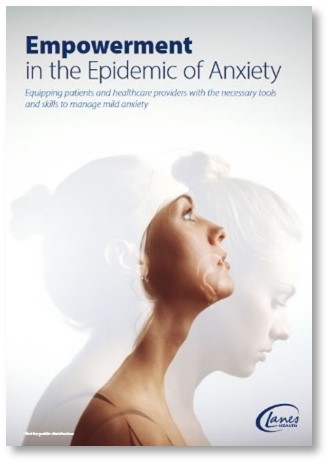A recent study has uncovered a troubling statistic: nearly half (48%) of UK adults report feeling anxious on a regular basis. As the nation grapples with a growing mental health crisis, experts are urging urgent action to support self-management techniques for mild anxiety, particularly as the NHS struggles to keep up with demand.
In a newly published ‘Empowerment in the Epidemic of Anxiety Report,’ a panel of leading health professionals highlighted the increasing burden on the UK’s healthcare system. According to the report, it is crucial to equip individuals with strategies to manage anxiety before it escalates into more severe conditions. The experts emphasize the importance of empowering patients with tools to build resilience and cope with anxiety symptoms.
A Decade of Rising Anxiety
Anxiety has seen a dramatic increase over the past decade, with younger people and women particularly affected. Today, more than 8 million people in the UK are living with a diagnosable anxiety disorder, yet recent research from Lanes Health, the company behind Kalms, suggests that this figure could be even higher. Their survey revealed that 48% of adults often experience anxiety that disrupts their daily lives, indicating the widespread nature of the issue.
NICE (National Institute for Health and Care Excellence) guidelines urge healthcare providers to avoid prescribing potentially addictive medications, such as benzodiazepines or SSRIs, especially for mild anxiety cases. However, with healthcare providers under immense pressure, meaningful interventions for patients can often be limited by time constraints.
Dr Sarah Jarvis: The ‘Perfect Storm’ of Anxiety
Dr Sarah Jarvis, a general practitioner and clinical consultant, notes the increasing challenge posed by rising anxiety levels. She remarks, “We’re facing a perfect storm when it comes to anxiety. The numbers of those affected have skyrocketed, particularly during the pandemic, and waiting lists for mental health services have never been longer. GPs are increasingly stretched, leaving it harder to offer help to those with mild anxiety or depression.”
The report outlines an immediate need to help both patients and healthcare professionals by promoting an approach to managing mild anxiety symptoms before they worsen. A structured framework called ACT is proposed, encouraging people to:
Acknowledge their symptoms
Choose the right coping tools
Talk to a healthcare professional
Building a Resilience Toolbox
As Professor Swaran Singh, an expert in Social and Community Psychiatry, explains, it’s not always clear what triggers an anxiety disorder, but there are steps that can be taken to build resilience. Early detection, education, and practical tools can prevent anxiety from becoming more severe. He stresses that pathologising anxiety unnecessarily should be avoided, instead focusing on manageable solutions for emerging symptoms.
Tools for Managing Anxiety
The next step is choosing effective self-help strategies from a ‘resilience toolbox.’ Evidence-based recommendations for this toolbox include self-help therapies, mental health apps, complementary practices, lifestyle changes, and clinically proven herbal remedies like pharmaceutical-quality lavender oil capsules.
If anxiety symptoms worsen, it is essential to seek professional help for accurate diagnosis and treatment.
Sukhvir Basra on the ACT Approach
Sukhvir Basra, a community pharmacist and expert panellist, emphasises the value of a robust toolbox for managing anxiety: “Patients need access to proven resources, from mental health apps to mindfulness practices. By offering products that work, such as lavender oil capsules, we strengthen the range of options available to patients, empowering them to build resilience and manage anxiety effectively.”
Time to ACT
The ‘Empowerment in the Epidemic of Anxiety Report’ concludes that a proactive approach is needed to tackle the current anxiety epidemic. By encouraging self-awareness, offering evidence-based tools, and fostering open conversations with professionals, the UK can take vital steps toward reducing the impact of anxiety on its population.


